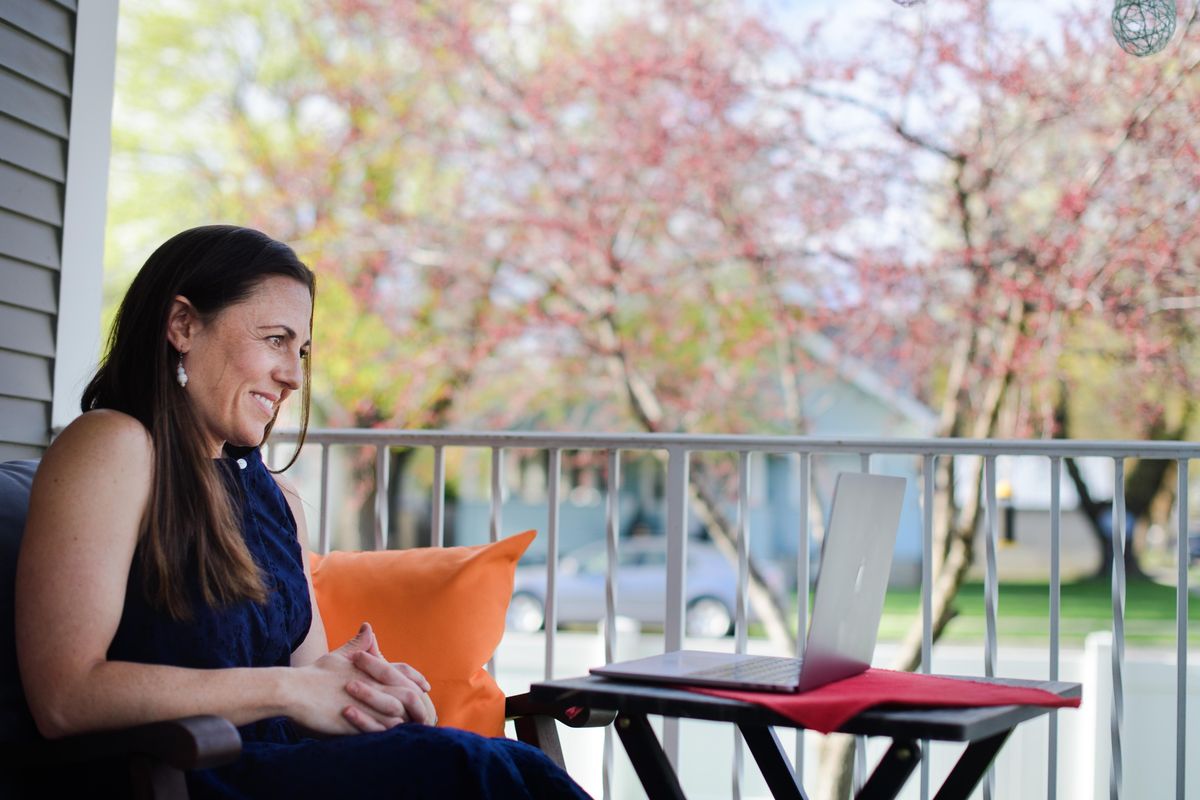WSU Nursing College instructor Janessa Graves inspires next generation of nurses, without being one herself

A mission in Fiji with the Peace Corps convinced Janessa Graves of the importance of public health, especially among people who need the most help.
“I was stationed on an island and there was this beautifully built hospital that literally did not have Band-Aids,” said Graves, an associate professor in the Washington State University College of Nursing in Spokane.
For the past three years, Graves has served as a fellow at WSU’s Honors College, allowing her to work with students in the nursing program with an eye toward clinical research.
Graves is quick to point out that she’s not a registered nurse (her background is in environmental biology), but over the past several years she’s worked with students preparing to treat patients and introduced them to the importance of scientific literature in a profession that’s demanding more academic knowledge from its front-line workers.
“When they’re in their jobs as nurses, they can be the ones that say, ‘I know how to do this,’ ” said Celestina Barbosa-Leiker, a colleague of Graves’ at the College of Nursing. “It’s more important than ever to read and understand science.”
Barbosa-Leiker said Graves’ unique contribution to students’ success in the field is one of the reasons she nominated Graves for the university’s President’s Award, which recognizes top leaders at WSU.
And she wasn’t the only faculty member to nominate Graves for the prize, which WSU President Kirk Schultz presented to Graves in an online ceremony held April 21.
Graves’ research has focused on the needs and disparities in health care in rural settings for injured children, specifically those with traumatic brain injuries. Graves was the lead author on an academic study published last year in the journal Health Services Research that analyzed commercial insurance claims to show rural children receiving care for brain injuries were paying more than their counterparts in cities.
And that’s not taking into account the extra hit to incomes on travel to get to areas where children can be treated, she added.
“It’s unfortunate. Because if you live in a city, maybe you have to take a little bit of time off work, but it’s taking a half a day off for people who live in rural areas,” Graves said.
Graves said she saw those rural barriers to care while growing up south of Missoula, and now in her own life as a mother caring for kids in Stevens County. In addition to caring for the body, an additional area of her research involves looking at the lack of mental health care options for families living in far-flung areas.
“With mental health counselors, privacy is an issue,” Graves said. “But when you both go to the only grocery store that’s in town, within 40 minutes, you’re going to run into each other.”
Barbosa-Leiker, who is also not a registered nurse but approaches her instruction through a background in psychology, said it’s important for students to be introduced to the kinds of big thinking and research opportunities that Graves provides in the college.
“She’s not a nurse, but she plays this super, key role in the College of Nursing,” Barbosa-Leiker said.
Jacquie Deichman graduated from the College of Nursing last year, and is a nurse specializing in neurology at Providence Sacred Heart Medical Center. Deichman said Graves introduced her to the possibility of continuing her academic career after practicing as a nurse, and that her help in understanding academic literature helped give her a leg up when it came time to starting in the workforce.
“Before I even started, I would have said there was absolutely no way I would do clinical research. But she made me really enjoy the process,” Deichman said. “That’s because of her, and her passion for it. It just explodes out of her.”
Deichman worked with Graves on an honors project that explored whether a 2009 Washington state law had been effective in requiring children with traumatic brain injuries to be evaluated by health care professionals before returning to play. After examining emergency room statistics, Deichman’s award-winning thesis determined that more and more children weren’t being evaluated.
“She spends so much time with her students, and really gets to know them,” said Deichman, who called Graves a mentor.
For Graves, working with nursing students while also researching and publishing is a way to feel part of the important work she says the college is doing, a feeling that was strengthened when she was recognized by her colleagues and students as worthy of the President’s Award.
“I didn’t go to WSU. I’m not a nurse,” Graves said. I think it’s meaningful, it solidifies what I’m doing. I feel like I belong, working with these students and the Honors College.”